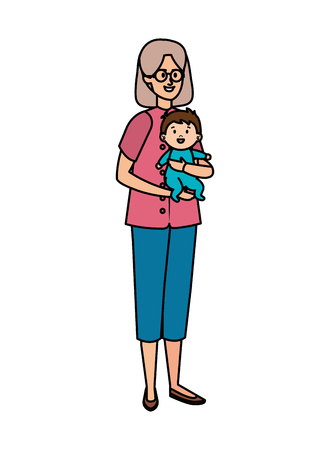1. Introduction: Why Family Routines Matter
Family routines play a crucial role in creating a sense of security and love for children. When daily activities follow a predictable pattern, kids feel more stable and confident in their environment. These structured routines help nurture emotional well-being and promote overall family harmony.
The Role of Routine in a Child’s Sense of Security
Children thrive on predictability. Knowing what to expect throughout the day reduces anxiety and helps them feel safe. Whether it’s morning rituals, mealtime traditions, or bedtime routines, these consistent habits provide comfort and stability.
How Family Routines Support Emotional Well-Being
Structured routines do more than just create order—they also foster emotional health. Regular family interactions, such as eating dinner together or reading bedtime stories, strengthen emotional bonds and reinforce feelings of love and belonging.
Examples of Simple Yet Effective Family Routines
| Routine Type | Description |
|---|---|
| Morning Routine | A consistent wake-up time followed by breakfast and preparing for the day. |
| Mealtime Routine | Sitting together for meals, sharing stories about the day, and practicing gratitude. |
| Bedtime Routine | A calming sequence of events like bath time, reading a book, and lights out at the same time each night. |
| Weekend Traditions | Special family activities such as movie nights or Sunday morning pancakes. |
The Impact of Routines on Family Harmony
A structured routine benefits not only the child but the entire family. Predictable schedules reduce stress for parents, making daily life smoother and more enjoyable. When everyone knows their roles and expectations, household conflicts decrease, leading to a more peaceful home environment.
2. Building Emotional Security Through Consistency
Children thrive on routine because it gives them a sense of stability and security. When daily activities follow a predictable pattern, kids know what to expect, which helps reduce anxiety and uncertainty. This consistency reassures them that they are in a safe and loving environment.
Why Predictability Matters
A structured daily routine provides children with a foundation of trust. When they wake up, eat meals, play, and go to bed at roughly the same times each day, they feel more in control of their world. Predictability helps them manage transitions better and fosters emotional well-being.
How Routines Foster a Sense of Security
When children experience consistency in their daily lives, they develop confidence in their surroundings. This security allows them to explore, learn, and grow without fear. Here’s how structured routines contribute to emotional stability:
| Routine Activity | Emotional Benefit |
|---|---|
| Regular Bedtime Routine | Helps children feel safe and relaxed before sleep |
| Consistent Mealtimes | Encourages family bonding and a sense of belonging |
| Daily Playtime or Reading Time | Cultivates connection and emotional security |
| Morning and Evening Rituals | Makes transitions smoother and reduces stress |
The Role of Parents in Maintaining Routine
A childs sense of security is closely tied to their caregivers ability to maintain consistency. Parents who establish clear expectations and follow through with predictable schedules help children feel grounded. Even during busy days, small moments—like reading a bedtime story or having breakfast together—can make a big difference.
Tips for Creating a Stable Daily Routine
- Keep it simple: Start with basic routines like wake-up time, meals, and bedtime.
- Add flexibility: While consistency is key, allowing some flexibility prevents frustration.
- Create visual schedules: Younger kids benefit from charts or pictures showing daily activities.
- Stay patient: It takes time for routines to become second nature—gentle reinforcement works best.
The Long-Term Impact of Consistency
The benefits of consistent family routines extend beyond childhood. Children who grow up with structure often develop better self-discipline, emotional resilience, and strong family bonds. By providing predictable routines, parents lay the foundation for lifelong emotional security and well-being.

3. Strengthening Family Bonds with Meaningful Traditions
One of the most powerful ways to create a sense of security and love within a family is through meaningful traditions. These shared experiences help children feel connected, valued, and supported. Whether it’s gathering for family dinners, reading bedtime stories, or planning weekend outings, these small but consistent activities strengthen family bonds and leave lasting memories.
The Power of Shared Traditions
Family traditions provide structure and predictability, which can be especially comforting for children. They know what to expect and look forward to these moments, reinforcing a sense of belonging and stability.
Examples of Meaningful Family Traditions
| Tradition | Benefits |
|---|---|
| Family Dinners | Encourages communication, strengthens relationships, and creates a time for connection. |
| Bedtime Stories | Promotes bonding, enhances language development, and provides comfort before sleep. |
| Weekend Outings | Creates shared experiences, fosters adventure, and strengthens family unity. |
| Holiday Rituals | Makes special occasions more meaningful, builds family identity, and passes down traditions. |
Building Lasting Memories Through Routine
The beauty of these traditions is that they don’t have to be extravagant or complicated. Simple routines—like making pancakes on Saturday mornings or having a movie night every Friday—can become cherished memories that children carry into adulthood. The key is consistency and genuine enjoyment in spending time together.
Cultivating a Stronger Family Connection
The more families engage in these meaningful traditions, the deeper their emotional connections grow. Over time, these shared moments become the foundation of a loving home where every member feels valued and secure.
4. Encouraging Positive Behavior and Responsibility
Creating structured family routines helps children develop essential life skills such as discipline, responsibility, and healthy habits. When kids know what to expect each day, they are more likely to feel secure and confident in their environment. A well-planned routine provides opportunities for children to take on responsibilities in a supportive and nurturing way.
How Routines Build Discipline
Children thrive on consistency. When daily activities follow a predictable pattern, kids learn the value of time management and self-discipline. For example, having a set bedtime routine teaches them that rest is important, while designated study times reinforce the habit of focusing on tasks.
Encouraging Responsibility Through Routine Tasks
Assigning age-appropriate responsibilities within daily routines helps children develop a sense of accountability. Whether it’s making their bed in the morning or setting the table for dinner, these small tasks instill lifelong habits of responsibility.
| Age Group | Suggested Responsibilities |
|---|---|
| Toddlers (2-3 years) | Putting toys away, helping with simple cleanup |
| Preschoolers (4-5 years) | Dressing themselves, helping set the table |
| Elementary (6-10 years) | Making their bed, packing their backpack |
| Pre-teens (11-13 years) | Laundry sorting, preparing simple meals |
| Teens (14+ years) | Caring for pets, managing personal schedules |
The Role of Positive Reinforcement
Praising and encouraging children when they complete their daily tasks fosters motivation and self-confidence. Simple acknowledgments like “Great job cleaning up your toys!” or reward systems such as sticker charts help reinforce positive behavior.
Nurturing Healthy Habits Through Routine
A structured routine also supports healthy habits such as regular exercise, nutritious eating, and proper hygiene. For example, incorporating outdoor playtime into the daily schedule encourages physical activity, while setting regular meal times promotes better eating habits.
Tips for Establishing Effective Family Routines
- Create a visual schedule: Use charts or calendars to help kids understand their daily responsibilities.
- Be consistent: Stick to the routine as much as possible to provide stability.
- Allow flexibility: While structure is important, occasional changes can help children adapt to new situations.
- Lead by example: Parents modeling responsibility and discipline encourage kids to do the same.
A well-structured routine not only promotes positive behavior but also lays the foundation for lifelong responsibility and independence. By establishing clear expectations in a loving environment, families can foster both security and growth in their children.
5. Adapting Routines as Children Grow
As children grow, their needs and schedules change, making it essential for parents to adjust family routines while maintaining consistency and emotional security. A well-balanced routine provides a sense of stability, but flexibility ensures that routines remain relevant and beneficial as kids develop new skills and responsibilities.
Understanding the Need for Change
From infancy to adolescence, children experience different developmental stages that require adjustments in daily routines. For example:
| Age Group | Routine Adjustments |
|---|---|
| Toddlers (1-3 years) | Introduce structured nap times, meal schedules, and bedtime rituals. |
| Preschoolers (3-5 years) | Add responsibilities like cleaning up toys or helping with simple chores. |
| School-age kids (6-12 years) | Adjust bedtime based on school needs, include homework time, and encourage extracurricular activities. |
| Teenagers (13+ years) | Allow more independence while keeping family meals and check-ins consistent. |
Balancing Structure and Flexibility
The key to adapting routines is finding a balance between structure and flexibility. Here are some tips:
- Communicate Changes: Talk with your child about upcoming routine shifts to prepare them emotionally.
- Create Predictability: Keep core elements like mealtimes and bedtime rituals stable to maintain security.
- Acknowledge Growth: Gradually introduce age-appropriate responsibilities to foster independence.
- Stay Attuned to Needs: Observe how changes affect your child and make further adjustments as needed.
The Role of Emotional Security in Routine Changes
No matter how much routines evolve, maintaining emotional security is crucial. Parents can do this by:
- Sustaining Family Rituals: Keeping traditions such as reading bedtime stories or weekly game nights strengthens emotional bonds.
- Providing Reassurance: Let children know that even when routines shift, your love and support remain constant.
- Cultivating Open Dialogue: Encourage children to share their feelings about changes in their daily schedule.
The Power of Consistency Through Life Stages
A well-adapted routine helps children feel secure while also preparing them for lifes inevitable transitions. By adjusting routines thoughtfully while maintaining key elements of consistency, parents create an environment where children thrive emotionally and developmentally.
6. Conclusion: The Lasting Impact of Family Routines
Family routines play a crucial role in shaping a childs sense of security, love, and emotional resilience. When families establish consistent daily habits, children gain a deep sense of stability that helps them navigate lifes challenges with confidence.
Building Emotional Resilience
Children thrive when they know what to expect. Simple routines—like bedtime stories, family meals, or morning hugs—help them feel safe and valued. Over time, these small moments create strong emotional bonds and teach children how to manage their emotions effectively.
Strengthening Family Connections
Regular family activities foster a sense of belonging and connection. Whether it’s a weekly game night or Sunday breakfast together, these traditions give children a foundation of love and support that lasts into adulthood.
Long-Term Benefits of Family Routines
| Benefit | Impact on Children |
|---|---|
| Emotional Stability | A structured environment helps children feel safe and secure. |
| Stronger Parent-Child Bond | Quality time spent together fosters trust and deeper relationships. |
| Improved Social Skills | Consistent routines teach respect, patience, and communication. |
| Lifelong Coping Skills | Predictable patterns help children develop emotional resilience. |
The Foundation for Future Success
The habits established in childhood often carry over into adulthood. Children who grow up with structured family routines are more likely to develop healthy relationships, maintain good self-discipline, and handle stress effectively as they grow older.
Cultivating strong family routines doesn’t require grand gestures—it’s the little things done consistently that make the biggest impact. By prioritizing simple yet meaningful traditions, parents can create a loving environment where children feel secure, valued, and prepared for life’s journey.

